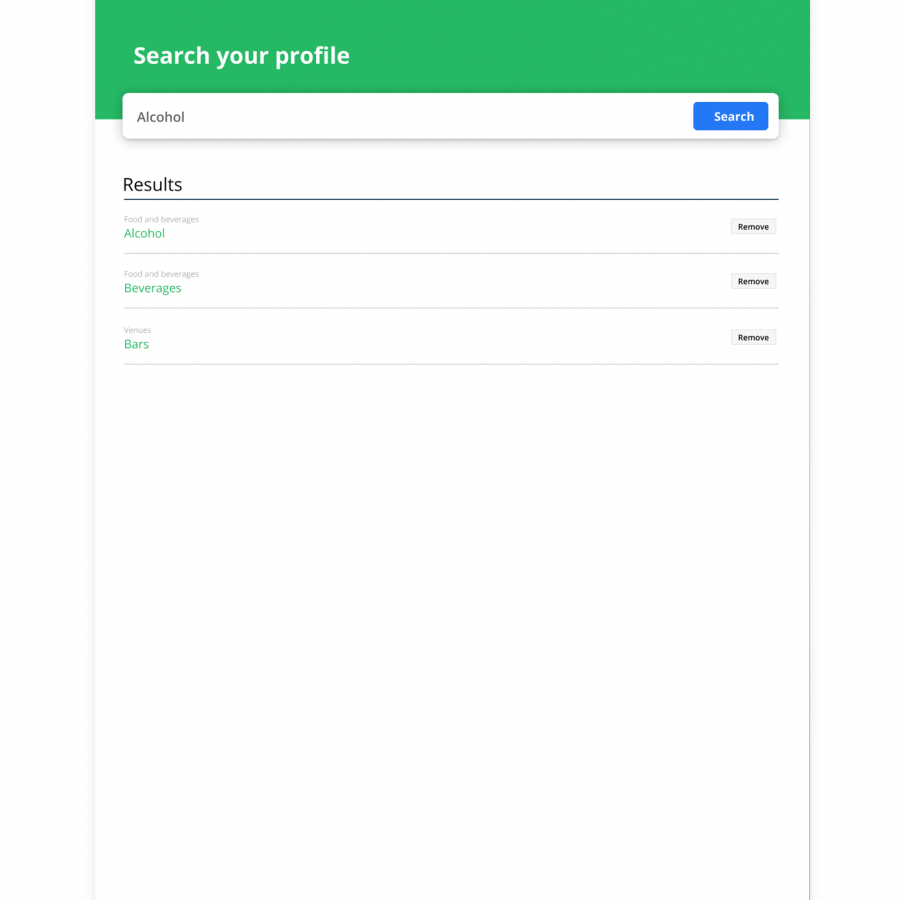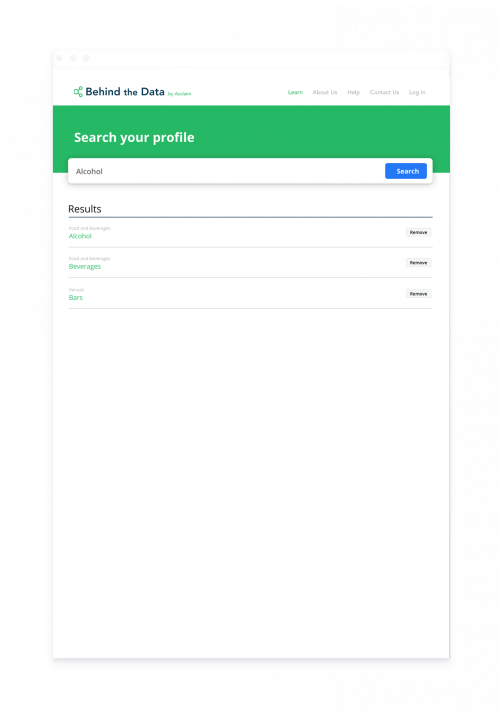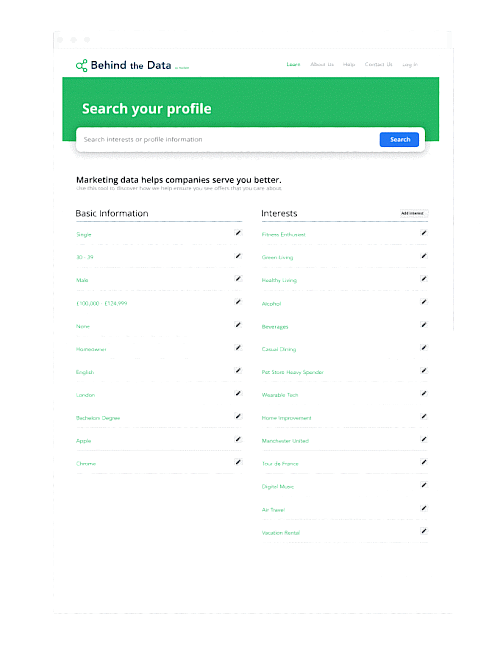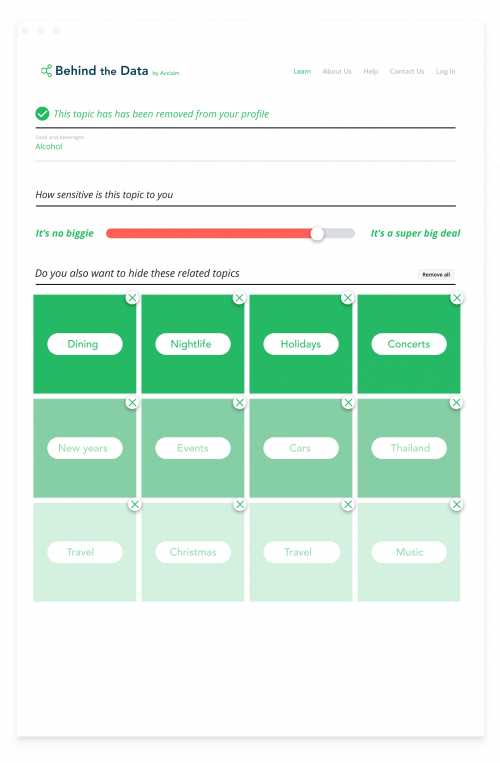How might we...
...enable people to easily curate and manage their online ad experience
Online advertising experiences can sometimes feel quite uncanny in predicting what a person may want or like and sometimes it can elicit a strong negative response. This is especially true when it comes to topics that are sensitive where there may be a need to exert more control in an easy and accessible fashion.
Part of the issue may be that there is a general lack of knowledge of how personal data is collected across the internet, and especially the role that data aggregators play - in this case the fictional company Acclaim - in the collection and control of this data. Services like Acclaim have an opportunity to give people more meaningful visibility into their data and ultimately more control of the resulting ads content that may be shown to them. By using AI to connect related topics, a person can be more fully in control of adjacent content used for ads that also may trigger a negative response.

Acclaim is a 3rd party data aggregator that uses data from public records and online browsing activity to infer attributes or interests about groups of people that may be useful in ads targeting. Acclaim understands the sensitivity of their work and wants to help people understand and control how these data points are used to make inferences about people's interests & attributes.

There is a general lack of knowledge of data aggregators and how data is collected across the internet. People don’t feel in control over their online experience especially when it comes to topics that are sensitive to a user (e.g. parenting, alcohol, mental health) there is a need to exert more control in an easy and accessible fashion.
How might we...
...enable people to easily curate and manage their online ad experience
While using the ‘Behind the Data’ app by Acclaim, a person might be shown ads on content that is sensitive to them. When this happens, they can search and indicate which is the sensitive topic - in this case alcohol. The AI system will generate a list of related topics that can be blocked or removed from the ad preference profile that also may cause concern.

Using a slider allows a person to indicate how sensitive a topic is to them - is it just a small nuisance, or is the topic very sensitive to them? For more sensitive topics, more associated topics will be generated to block. Ensuring people can take control also allows the AI to learn the nuances of these human-perceived associations and make better predictions in the future. The system works by using a similar algorithm to that used to target ads to people, so by reversing this mechanism, people are offered topics related to the sensitive one that they might want to block.

Like most 3rd party data aggregators, our fictional app Acclaim is probably unknown to the wider public. There is currently no naturally occuring trigger or bridge for people to engage with Acclaim’s content and tools. A relevant next step for the concept could be to consider the journey of people arriving after click-through from an ad on another platform. Where are the bridges between ads content served and visibility into the reasons for content being served? This would only work, however, at the moment a person is experiencing an ad negatively and opted to take action.
Other solutions may need to be considered to engage people in their online ad experience through more proactive engagement. Perhaps querying them from time-to-time to provide their preferences on certain topics in the context of regular online advertising.
How might we build on this concept to...
